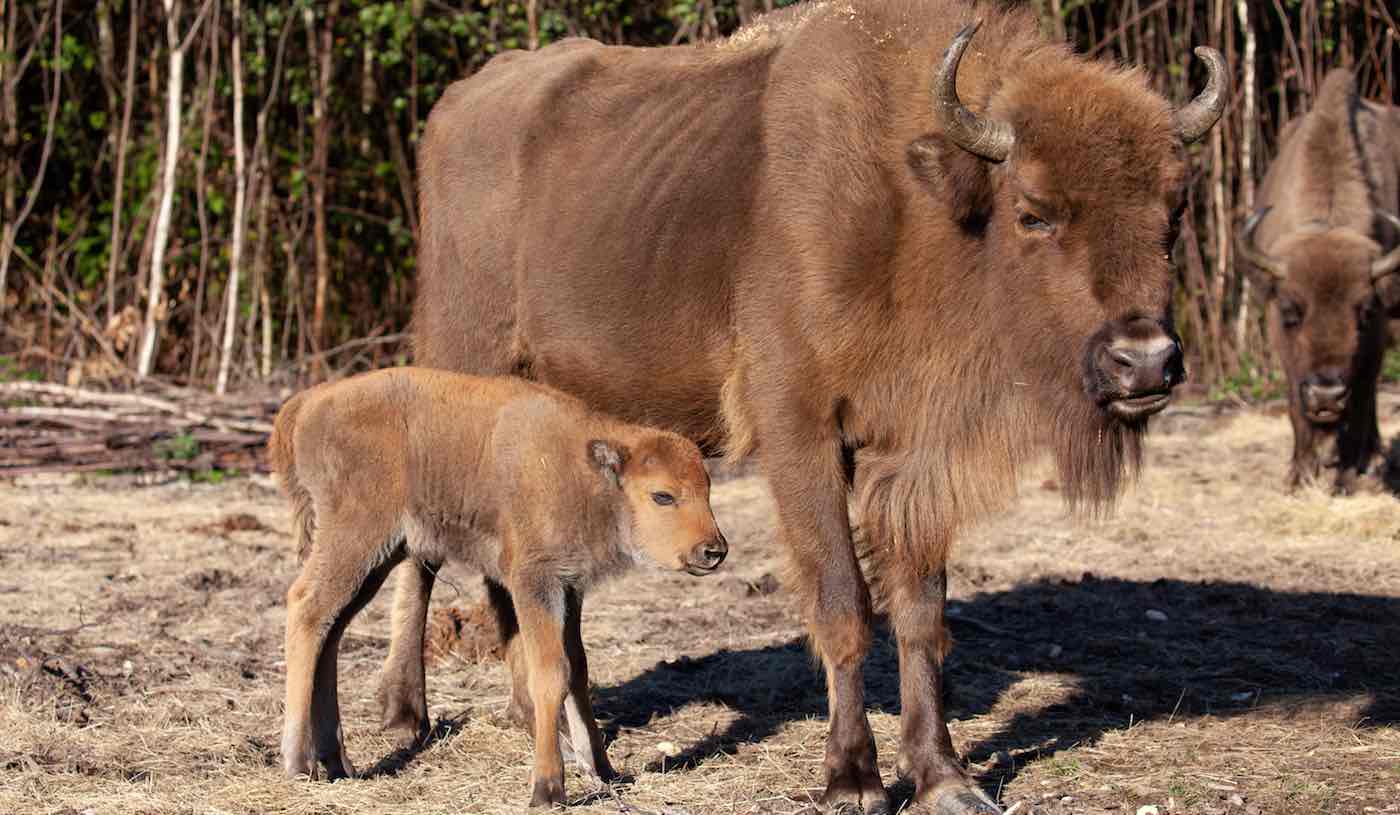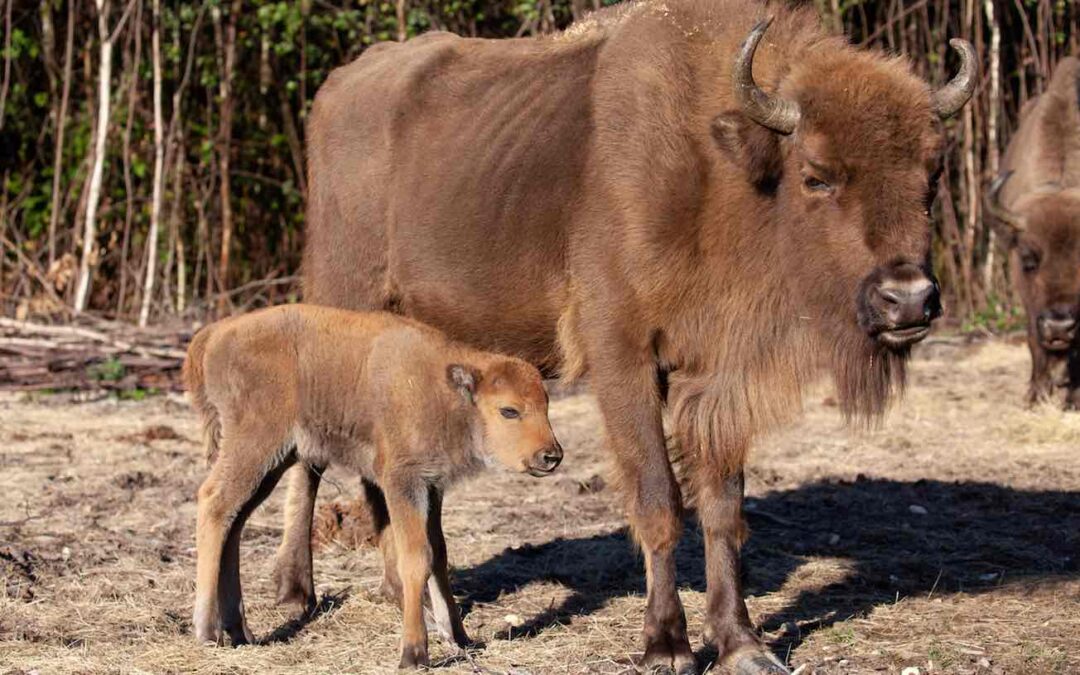
A small herd of wild bison were in July moved to West Blean, Kent in England, and just months after the herd was moved, a baby bison was born. This is the first wild bison born in the UK in almost 6000 years.
The rangers at the Wilder Blean project were delighted when the small female bison was born since pregnancy is undetectable in the species (this is a survival mechanism so as to not be targeted by predators). This little baby is now the fourth female bison in the herd.
“When the bison took their first steps into the wild just weeks ago, it was hard to imagine that anything could come close to the elation we felt in that moment. But here we are celebrating the arrival of a bison calf,” exclaimed Mark Habben, Director of Zoo Operations at the Wildwood Trust to Good News Network.
“We always hoped that the bison would breed, but it is fair to say we were not anticipating it quite so soon,” said bison ranger Tom Gibbs to Good News Network.
In the next two months a bull is to be introduced to the herd as part of the rewilding initiative. The initiative wants to combat both the climate and biodiversity crisis. According to Good News Network, the bison acts as an ecosystem engineer. This means that they create light, space and fertilizers that make wildlife thrive through their natural behavior. Other species thrive when bison create microhabitats by dust bathing, eating bark and felling trees. Grazing is important for the diversity of herbs and grasses.
“This is now an incredibly important time for this family of eco-system engineers and we understand that people will want to catch a glimpse of this new addition, however we ask people to consider the impact they may have and ask that they are given the space and time they need to bond,” added Gibbs.
The birth of the baby female on September 9th wasn’t announced straight away by the Kent Wildlife Trust or the Wildwood Trust. Now, rangers say that she is developing well, copying the other bison's iconic dust-bathing behavior as well as playing in the rain.
“These animals are wild, so we want to remain as hands-off as possible, but their welfare is at the absolute heart of what we do,” said Gibbs, who had already created a care plan for any calves to ensure their needs would be met.
“She is being observed by experts and we are constantly monitoring the whole herd to ensure their wellbeing.”
The hope is for the Blean site to turn into a lush, thriving, biodiverse environment once more thanks to the bison, Exmoor ponies and Iron-age pigs.
Picture: SWNS via Good News Network





